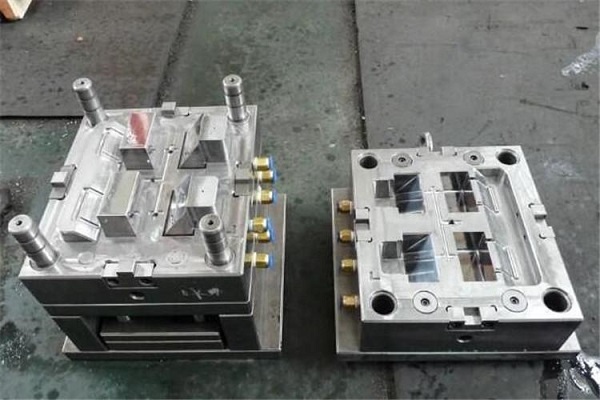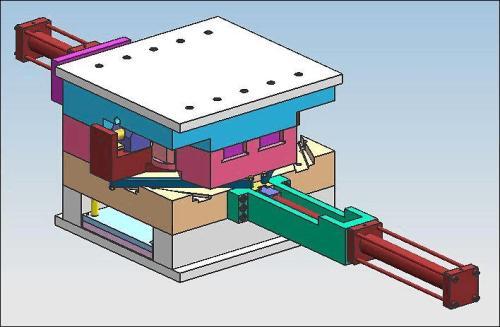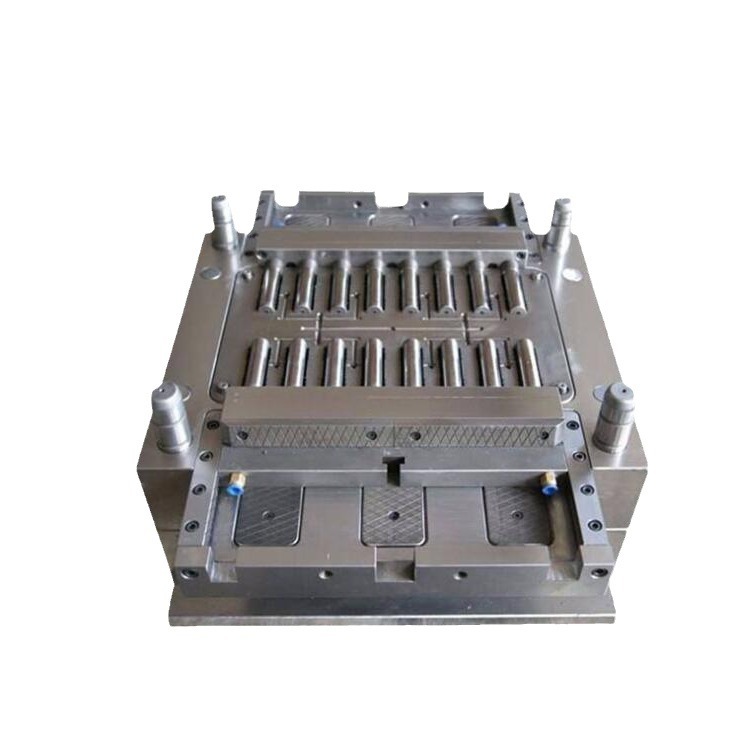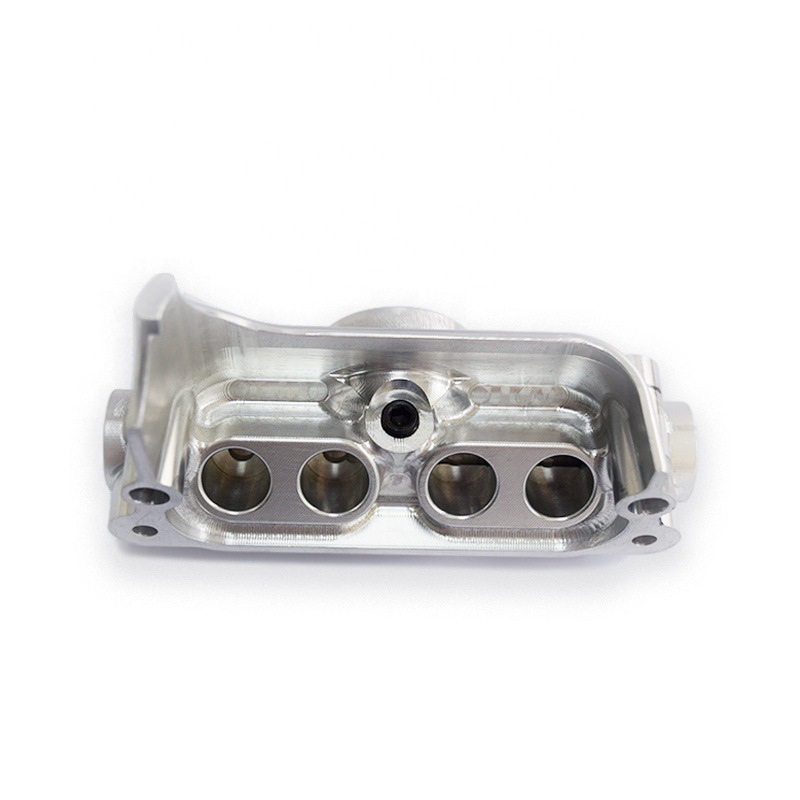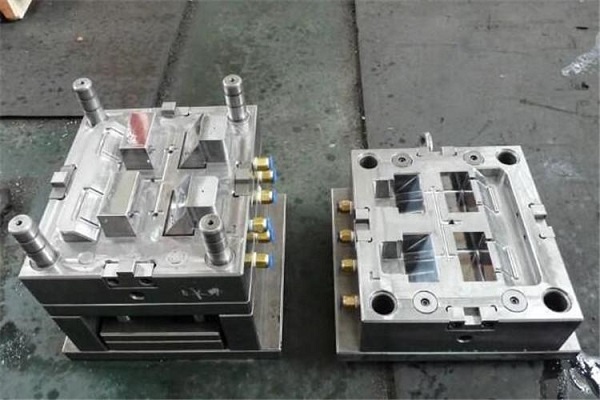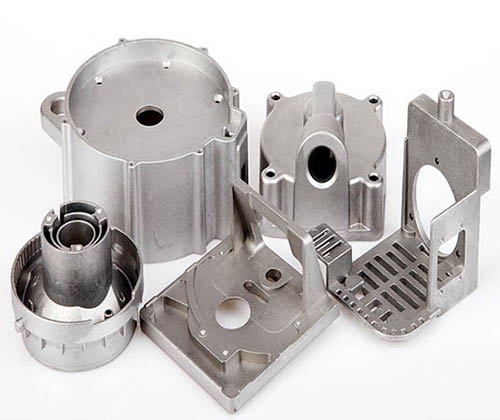Understanding Mold Standard Parts
Mold standard parts are essential components in the mold - making industry. They are pre - manufactured components with standardized dimensions, materials, and performance characteristics. These parts are widely used in various molds, such as injection molds, die - casting molds, and stamping molds.
- Common Types of Mold Standard Parts
- Guide Pillars and Guide Bushings: Guide pillars are cylindrical components, usually made of high - carbon steel or alloy steel, which provide accurate guidance for the movement of mold plates. For example, in an injection mold, guide pillars ensure that the moving half and the fixed half of the mold can be accurately aligned during the opening and closing process. Guide bushings, often made of bronze or self - lubricating materials, are installed in the mold plates to cooperate with guide pillars. They reduce friction and wear during the movement of the mold, improving the service life of the mold. A well - designed guide pillar and guide bushing system can ensure the position accuracy of the mold within ±0.01mm.
- Ejector Pins: Ejector pins, also known as push pins, are used to eject the molded products from the mold cavity. They are typically made of hardened steel. After the plastic material in the injection mold has cooled and solidified, the ejector pins, driven by the ejector mechanism, push the product out of the cavity. The diameter of ejector pins usually ranges from 1mm to 10mm, and different diameters are selected according to the size and shape of the product.
- Sprue Bushings: Sprue bushings are installed at the entrance of the mold's gating system. Their main function is to guide the molten plastic from the injection nozzle into the mold cavity. Made of heat - resistant and wear - resistant materials, they can withstand high - temperature and high - pressure molten plastic flowing through. For instance, in a large - scale injection mold for automotive parts, the sprue bushing needs to have excellent heat - resistance to ensure the smooth injection of plastic materials at high temperatures.
The Significance of Mold Standard Parts in Mold Production
1. Cost - Efficiency
Using mold standard parts can significantly reduce costs in mold production. Firstly, the design time is shortened because engineers don't need to design these components from scratch. For example, a mold design project that would take 30 days without using standard parts can be completed in 20 days when standard parts are utilized, saving about one - third of the design time.
Secondly, in terms of manufacturing, standard parts are often produced in large quantities, which benefits from economies of scale. A non - standard guide pillar might cost \(50 to manufacture individually, while a standard guide pillar of the same quality, produced in batches of 1000, can cost as low as \)20 each, a 60% cost reduction.
2. Quality Assurance
Mold standard parts play a crucial role in ensuring the quality of molds. They are produced under strict quality control systems, guaranteeing uniform size accuracy. For instance, the diameter tolerance of standard ejector pins can be controlled within ±0.005mm, while non - standard ones may have a tolerance of ±0.02mm. This high - precision standard part ensures that the molded products have consistent quality.
There is a case in the injection mold production for a mobile phone shell. By using standard guide pillars and guide bushings, the mold's alignment accuracy was improved. The rejection rate of the mobile phone shells due to mold misalignment decreased from 10% to 2%, greatly enhancing the overall quality of the products and reducing production losses.
3. Production Efficiency
Standard parts can remarkably improve production efficiency. Their quick - fit design allows for rapid assembly. In a mold assembly process, using standard mold plates and screws can reduce the assembly time by 40%. A mold that originally took 10 days to assemble can be completed in 6 days with the use of standard parts.
Moreover, since standard parts have stable performance, the debugging time of the mold is also reduced. After the mold is installed on the injection molding machine, with standard parts, the average debugging time can be shortened from 2 days to 1 day, enabling the mold to enter the normal production stage more quickly and increasing the overall production efficiency.
Comparison: With and Without Mold Standard Parts
The following table clearly shows the differences between using and not using mold standard parts in terms of cost, quality, and production cycle:
| Aspects | Without Mold Standard Parts | With Mold Standard Parts |
| Cost | - Longer design time, increasing labor costs. - High manufacturing cost for non - standard parts due to lack of economies of scale. - Higher inventory cost as each part may need to be stored separately. | - Shorter design time, reducing labor cost. - Lower manufacturing cost due to mass production of standard parts. - Lower inventory cost as standard parts are more universal. |
| Quality | - Difficult to ensure uniform quality due to non - standardized production. - Higher rejection rate of molds and molded products. | - High - precision standard parts ensure consistent quality. - Lower rejection rate of molds and molded products. |
| Production Cycle | - Longer design time, assembly time, and debugging time. - Total production cycle is usually longer. | - Shorter design time, assembly time, and debugging time. - Total production cycle can be significantly shortened. |
Yigu Technology's Perspective
As a non - standard plastic metal products custom Supplier, Yigu Technology deeply understands the significance of mold standard parts. In our custom - made services, although we focus on non - standard products, mold standard parts are also an indispensable part.
We always try to use standard parts as much as possible in the design and production process. Standard parts not only reduce our production costs, but also shorten the production cycle. For example, when manufacturing a custom - made plastic part, we can use standard ejector pins and guide pillars. This allows us to quickly assemble the mold, reducing the time spent on manufacturing non - standard parts from scratch.
Moreover, by using high - quality standard parts, we can ensure the stability and quality of the molds we produce. This in turn guarantees the high - quality delivery of our non - standard plastic and metal products. Yigu Technology believes that the rational use of mold standard parts is a key factor in providing efficient and high - quality custom - made services.
